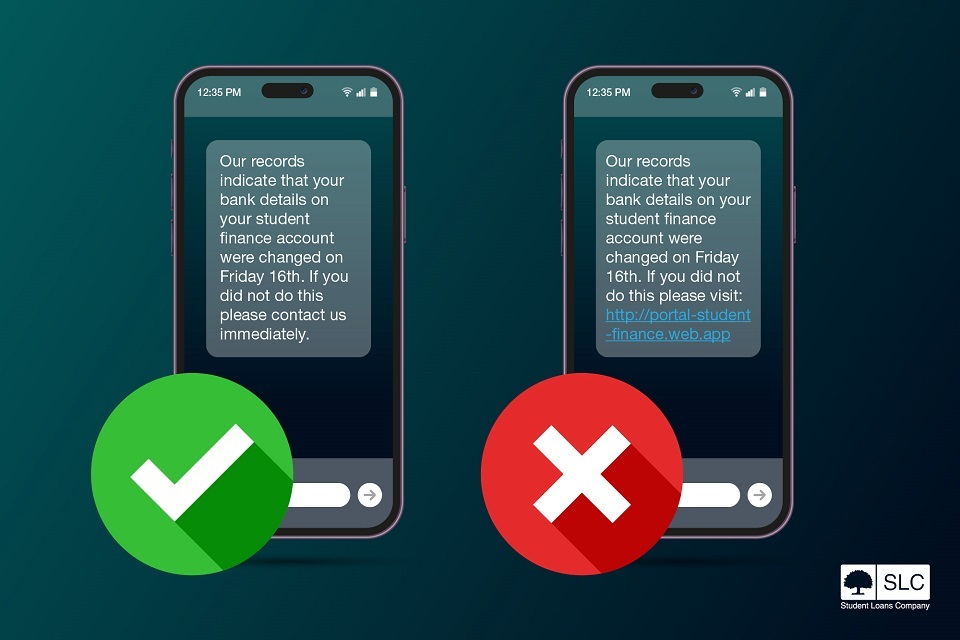We use some essential cookies to make this website work.
We’d like to set additional cookies to understand how you use GOV.UK, remember your settings and improve government services.
We also use cookies set by other sites to help us deliver content from their services.
You have accepted additional cookies.
You have rejected additional cookies.
Departments, agencies and public bodies
News stories, speeches, letters and notices
Detailed guidance, regulations and rules
Reports, analysis and official statistics
Consultations and strategy
Data, Freedom of Information releases and corporate reports
The Student Loans Company (SLC) is urging students to be aware of fraud and smishing scams as the new academic year starts.
The Student Loans Company (SLC) has issued a smishing reminder to students as the academic year gets underway.
In September, SLC will pay approximately £2.3billion to more than one million students in maintenance payments as they start and return to university. However, at this time of year, students can be targeted by criminals with fraud involving text messages (SMS) currently the most popular form of scam.
Alan Balanowski, Risk Director at SLC, said: “At SLC, our mission is to support students to invest in their future.
“Unfortunately, we know fraud is becoming more sophisticated with different methods and technologies being used to target students, especially around the start of the academic year when the first maintenance payment is made. Over the last two years, popular scams included impersonating SLC or students via phone calls (vishing) or through emails (phishing), but this year we are seeing more fraud involving SMS. For example, students being asked to click on a link to change their bank details.
“We have a range of prevention methods that we use to identify and stop scammers, and we are constantly evolving our approach and techniques to prevent fraud. Working together with students is an important part of our approach as they need to know what to look for in suspicious communication and where to go for help.”
SLC is sharing advice on how to spot and stop a scam.
SLC’s top tips
SLC also has a range of methods to protect students, including sending an SMS to customers in England if a change has been made to their banks details and asking them to confirm the change. If a customer hasn’t changed their details but receives a message, they should log into their online account to review their information.
SLC will also never ask students to provide their personal or financial information via email or text message. If a student receives a suspicious message, they should report it to SLC’s Financial Crime Prevention Unit immediately by emailing [email protected] or calling the dedicated hotline on 0300 100 0059.
Neither SLC or Student Finance England (SFE) provide any services through WhatsApp and will never initiate contact with a student through social media channels to discuss their application or student finance entitlement. If a customer receives a communication from SFE that they are unsure of, they should log into their online account to verify if it’s genuine.
There is also a range of additional advice and information on recognising and avoiding scams from Action Fraud, the UK’s national reporting centre for fraud and cybercrime.
Sharing will open the page in a new tab
Don’t include personal or financial information like your National Insurance number or credit card details.
To help us improve GOV.UK, we’d like to know more about your visit today. We’ll send you a link to a feedback form. It will take only 2 minutes to fill in. Don’t worry we won’t send you spam or share your email address with anyone.
Get the message – smishing reminder for students as the academic … – GOV.UK

